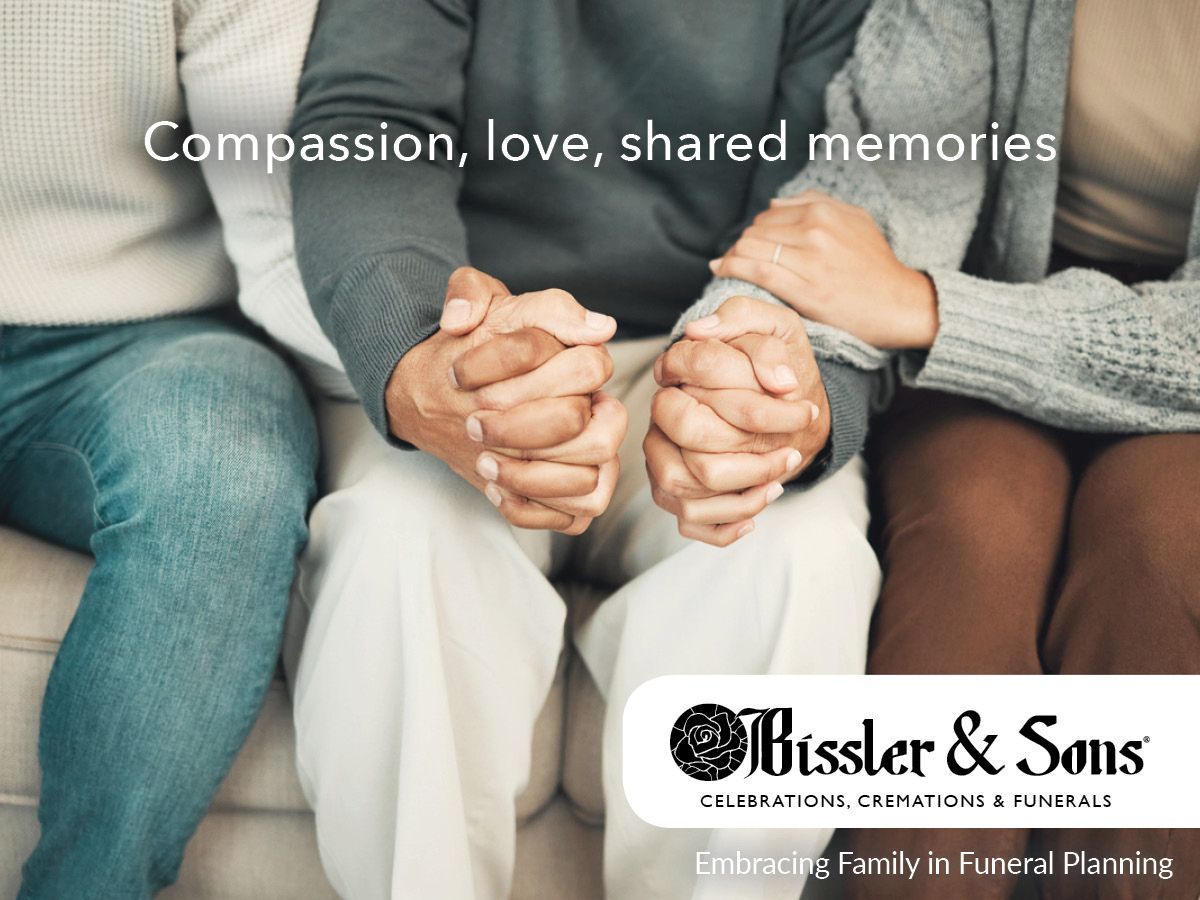Dealing with Grief on a Loved One’s Birthday
Grief isn’t a linear process. Although the first few months after a loss are typically the hardest, specific events and occasions can trigger the return of those difficult emotions. One such day is your loved one’s first birthday after they pass. A day that was usually reserved for celebrations can become much heavier. Although everyone grieves differently, these tips may help you get through this trying day.
5 Tips for Grieving on a Loved One’s Birthday
1. Talk to friends and family about honoring the day.
Losing a loved one affects people in different ways, but for many people, being alone in their grief isn’t the best way to take care of themselves. Celebrating your loved one’s birthday after they’re no longer physically with you may not look the same as those celebrations used to look. But some people take comfort in continuing to honor the day, even if it’s in a new way. Before the day arrives, talk to your friends and family about potential ideas for being together on your loved one’s birthday.
You have many different options for spending the day together, and it’s up to you if you want the day to be somber or more celebratory. Some families prefer to simply get together like you would for any birthday party. They break out their loved one’s favorite foods, bake their favorite birthday cake, and even sing “Happy Birthday” to their loved one. While this more joyous celebration may work for some families, others prefer a softer affair. Some families plan trips to the cemetery where their loved one is buried, bringing them gifts of flowers for their special day.
There’s no wrong way to use this day to honor your loved one’s memory. The best thing to do is talk to your family and friends about what they’d like to do and feel most comfortable doing. Although everyone deals with grief differently, it’s also a collective experience, so you should do your best to be patient with one another and recognize that not everyone will want to grieve the way that you do. And if you yourself would rather grieve alone, that’s okay too.
2. Do something in their memory.
Although your loved one may not physically be with you, their memory lives on. To help you in your grief, you may want to do something to honor that memory on their birthday. Think about the things that your loved one enjoyed in life. What places did they love to go? What were they happiest doing?
Perhaps your loved one enjoyed sleeping under the stars. Schedule a camping trip for their birthday and stare up at the night sky just as they have done so many times before. Or maybe your loved one was an avid dog lover. You could plan to volunteer at a dog shelter and spend some time cuddling the pups like they loved to do. You can even create a tradition of doing these things or going to these places on your loved one’s birthday, which may make future birthdays a little easier. Sometimes the routine of having a tradition can take you out of your head and make you less likely to feel alone.
Planning an entire day honoring your loved one’s memory may not be possible, but you can still take simple steps to feel your loved one around you. You could light a candle in their honor, cook their favorite dinner, or simply look through photo albums.
3. Write them a birthday card.
It may feel silly to write a card that you can’t send. But writing about how you’re feeling can be a very therapeutic process. By writing your loved one a birthday card, you can share your thoughts in a judgment-free place. You can say how much you miss them and tell them all the things you wish you could say to them in person. Writing a birthday card may be an emotional experience, so be sure you’re in the right headspace before you begin and take breaks if you need them. And if you just can’t bring yourself to finish the card, that’s okay too.
It’s up to you to do what you’d like with the card. You may want to hold every birthday card you write in a special place in your house. In most cases, you can also bring the card to your loved one’s grave, depending on the cemetery’s rules.
4. Make a plan to spend time reflecting on your grief.
It’s essential that you allow yourself to feel how you feel. Perhaps the only truly wrong way to grieve is by telling yourself that you’re not allowed to grieve. Whatever you feel, whether it be bittersweetness, anger, sadness, or something else entirely, is not incorrect. You need to acknowledge those emotions instead of attempting to bury them. Even if your family plans a celebratory day in your loved one’s honor, you should still take some time for yourself to let yourself ride through your own emotions.
You may want to consider scheduling an appointment with a mental health professional to start the day of your loved one’s birthday. That meeting can help set you on a path of understanding the complex feelings that you may be dealing with. You should also take time to engage in self-care, which can look different for everyone. You may want to take a long walk, rest in a hot bath, or spend a bit of time lost in a book. Always make sure to budget in time to allow your mind to take care of itself.
5. Spread joy in their name.
Birthdays are generally considered joyous occasions. But the birthdays that come after someone has passed typically take on a more bittersweet or outright sad note. Doing something for others is a way to help bring back some of the merriment. Many different non-profit organizations allow you to donate gifts to someone who would otherwise not receive them for their birthday. By taking part, you’re spreading birthday wishes around the world. You could also volunteer for your loved one’s favorite charity or participate in non-profits that bake birthday cakes for kids who otherwise would not have one. These little acts of kindness can make us feel lighter in the face of grief, and you’re also allowing your loved one’s kind spirit to continue to make a difference in the world.
The first birthday after a loved one passes can trigger many kinds of feelings. You may not feel much like celebrating. Let yourself feel however you feel. You may be dealing with symptoms of grief more strongly than you have in some time. Although honoring your loved one’s memory may help you feel a little better, it’s vital that you listen and be patient with yourself. It’s okay to celebrate the day, but it’s also good to recognize when you need some time to be with yourself and your emotions.


















